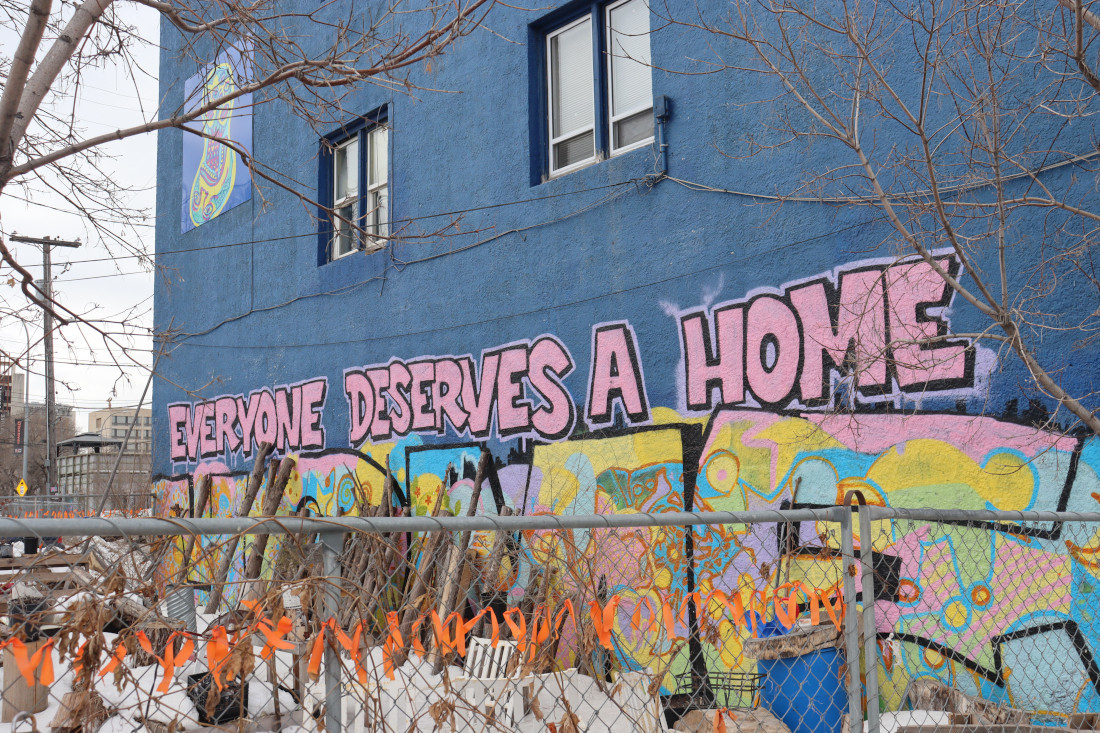Manitoba announces plan to end homelessness
Province unveils plans for new $126M homelessness strategy
On Feb. 28, the provincial government announced a new housing-first homelessness strategy called A Place for Everyone, which promises $126 million in funding and 700 social housing units. The province is providing $58 million on top of $68 million promised in 2022.
Non-profit organizations, community advocates and municipal and provincial officials collaborated to create the strategy in 2022. More than 400 people were consulted, Families Minister Rochelle Squires said during a news conference.
“We recognize that people become homeless when they fall between the cracks and we understand that those cracks are largely provincial systems,” she said. “This shift is necessary if we want to end homelessness, rather than just managing it.”
Squires said this is the first whole-of-government homelessness strategy enabling service providers to move from primarily crisis-orientated care to focusing on prevention.
The End Homelessness 2022 Winnipeg Street Census, which was completed over a two-day period, found 1,256 people experiencing homelessness in Winnipeg, with likely more unreported.
The housing-first model focuses on modernizing the emergency response, providing housing with supports, preventing homelessness, developing person-centred services and building northern and rural capacity.
Some of the new initiatives include increasing funding for shelters to operate as 24/7 service hubs and adding 700 social housing units with support teams in 2023 and 2024. These support teams will provide help with getting personal documents, social services and daily clinical support.
The strategy will also continue providing increased annual funding for N’Dinawemak, Manitoba’s only Indigenous-led 24/7 shelter funded by the province and a community-based bridge program for people waiting for Employment and Income Assistance (EIA).
Provincial Working Group chair for the Right to Housing Coalition Kirsten Bernas says the Province still has to do more for housing in Manitoba. She says the provincial government has invested little in social housing, and Manitoba has lost many units in recent years because of buildings being sold or falling into disrepair.
Bernas says the impact of less social housing is felt within the province, but it’s difficult to know exact numbers because the data isn’t easily available.
“It didn’t seem to be a political priority before this announcement, and I’m not sure it is now, either, even with the strategy, because we only have the one-year commitment. It’s going to take more than that for people to feel reassured that this government is serious about ending homelessness,” Bernas says.
According to the Manitoba Non-Profit Housing Association, Manitoba needs 8,700 very low-income units to fill the current need.
University of Winnipeg geography professor Dr. Jino Distasio says housing is key to ending homelessness.
“There's a lot of instability in a lot of people’s lives,” Distasio says. “The gold standard is getting people into independent, safe, affordable housing and then having access like anybody else to the support they need to live a real, fulsome life.”
Distasio says political will and community empowerment will impact how successful the strategy will be.
“We need all levels of government and the community to say enough is enough.”
“I’d love to see a day in Winnipeg where we aren’t focused on thousands of people. This strategy won’t get us there, but it's moving the needle. We need to do more.”
Published in Volume 77, Number 22 of The Uniter (March 16, 2023)








